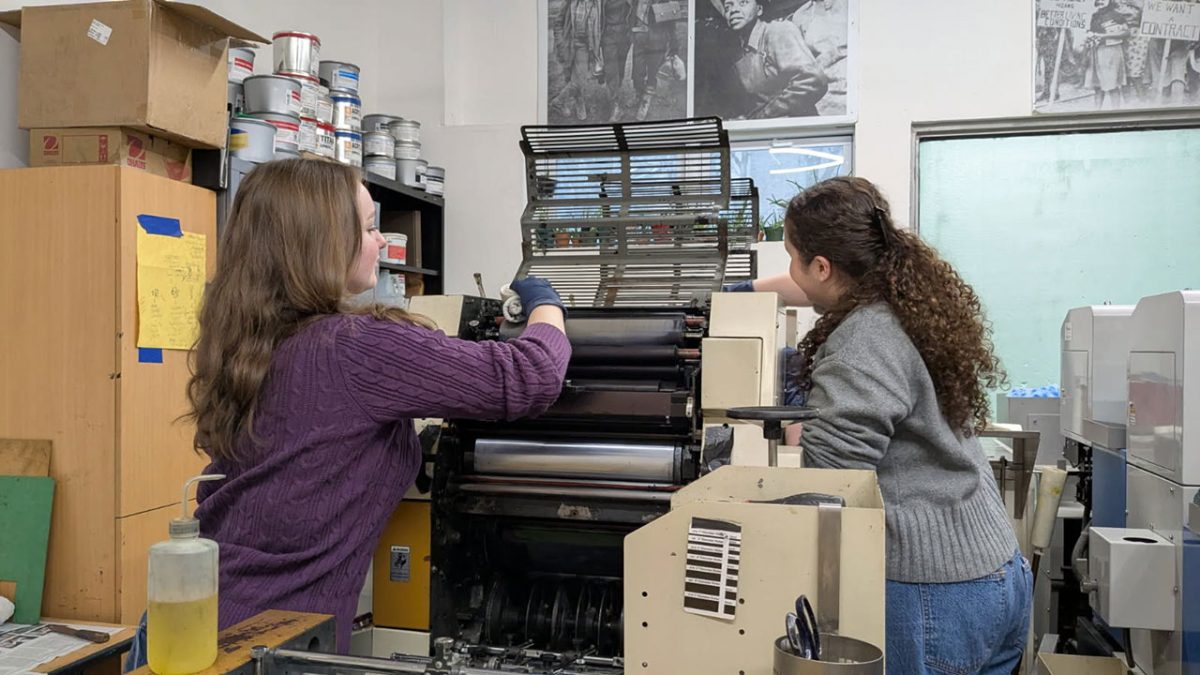Students in Professor Ashar Foley’s Fundamentals of Communication and Media Studies course are volunteering with the Bronx-based organization Women’s Press Collective (WPC). The partnership provides students with hands-on learning in multiple areas of journalism production, from news writing to operating a press.
Founded in 1982, WPC was initially created to amplify the voices of low-paid women workers by allowing them to produce their own media. Currently, they run a free benefit program where they teach production and publication skills.
“It’s building truly independent, truly community-based media,” said Lisa Daniell, WPC’s Operations Manager.
WPC’s labor roots are reflected in its programming. Volunteers working with WPC can expect to learn about labor, press and media industry history. They can also expect to focus on issues in low-income communities and learn about organizing work.
This isn’t WPC’s first time partnering with a university. They have a long history of working with students from schools in New York, particularly through the City University of New York(CUNY) system. They reached out to Foley when they moved to the Bronx from Brooklyn.
Fordham and WPC were able to form this relationship through Fordham’s Center for Community Engaged Learning (CCEL). CCEL gives professors a small sum of money to bring in a community partner. Foley ultimately decided to partner with WPC because she liked that they are located near Fordham’s Rose Hill campus and sees them as an ideal partner for journalism majors.
“Your class is doing something for them and they’re providing something for the class,” said Foley.
Students hone their skills through volunteering with WPC. While working at WPC, students practice their news writing skills, learn how to layout pages, operate and clean printing presses and work paper cutters. Fordham students also get the chance to meet and interact with students from other schools in New York as well as local community-based organizations. For Daniell, that’s the kind of community building that she hopes WPC can foster.
“It’s an opportunity for students to learn about how to build community media,” Daniell said.
The emphasis on community is also what draws Foley to WPC. She points out that besides focusing on community-centered media, WPC makes and serves lunch for office volunteers, providing a comforting escape for students used to dining hall food.
“You’re sitting around a table eating together,” Foley said.
Daniell underlines the importance of this kind of community in today’s media landscape, which she describes as “under unprecedented attack.” She finds that the journalism students involved with WPC are worried about what the current state of media means for their individual futures and the future of the world. However, she hopes that WPC can be a place for students to take action.
“We know it’s important to have grassroots organizations that will unite people together because there is unity in strength, there is strength in organization. And that’s what students can not only be involved in but really take leadership in,” said Daniell.







































































































































































































